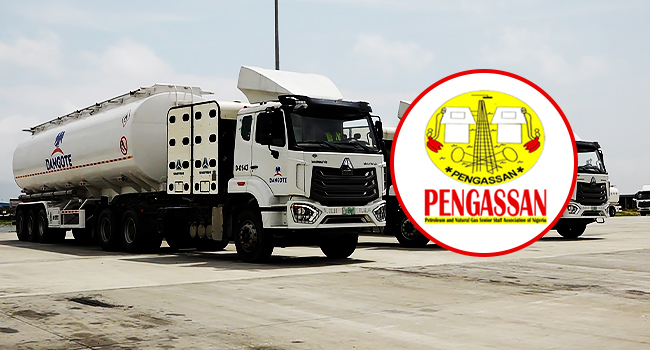I am reminded today of Dr. Gimba Mohammed, who taught us Public Enterprise Management (PUB 418)—a course I not only enjoyed but also excelled in with an 88% mark. His lectures emphasized the fragile nature of public enterprises in Nigeria, their chronic inefficiencies, and why private sector participation often becomes the saving grace. As the national debate around Dangote and PENGASSAN intensifies, I find myself recalling those classroom insights with striking clarity.
Unionism is a noble right—workers should have freedom of association, assembly, and the ability to bargain for their welfare. Yet history has shown us that absolute and unchecked freedom often becomes the undoing of our public enterprises. PENGASSAN, in its push to assert dominance over Dangote Refinery, is not just exercising its mandate but, perhaps unknowingly, attempting to reproduce the very culture of inefficiency, slow bureaucracy, indecision, and waste that crippled our state-owned refineries. To echo the words of Max Weber, bureaucracy can either be the “iron cage” that organizes society efficiently, or the one that suffocates progress. In Nigeria’s case, it has too often been the latter.
The first question, therefore, is simple but profound: if PENGASSAN insists on applying its methods to Dangote Refinery, what then was the essence of private intervention in the first place? Why did we clamor for privatization, commercialization, and public-private partnerships if the public mode of operation had been so successful? If our public refineries were models of efficiency, why did we import fuel for decades while workers remained redundant?
PENGASSAN, in its decades of existence, must answer: what tangible achievements has it delivered to the Nigerian people? Can it point to saving our refineries from collapse? Can it point to sparing the nation the agony of fuel subsidies aggravated by massive importations? If anything, the contrast is glaring: in just a few years, Dangote Refinery has offered Nigerians more hope of energy stability, forex savings, and economic relief than the union has in decades of activism.
The irony grows sharper when PENGASSAN claims to be protecting jobs. What jobs, exactly? Those created by Dangote as a private individual—jobs that would never have existed without his vision and capital? It is an uncomfortable paradox: the same union that presided over the ruin of government refineries now seeks to take credit for defending opportunities it did not create. To borrow from Joseph Schumpeter, innovation is the engine of progress, but here it seems innovation is being punished for succeeding where tradition failed.
Where was PENGASSAN when Nigerian elites exported their wealth to foreign universities, foreign hospitals, and foreign businesses, creating jobs abroad while our local economy bled? Eighty percent of our elites have their investments overseas, yet the union is suddenly most vocal when a Nigerian dares to invest massively at home. Which jobs are worth defending—the non-existent ones in moribund public refineries, or the real ones Dangote created with his own resources?
That is why many Nigerians instinctively side with Dangote. They recognize that PENGASSAN’s battle is less about collective welfare and more about protecting its turf. Meanwhile, whether directly or indirectly, PENGASSAN members themselves benefit from Dangote’s intervention, just like every Nigerian who enjoys reduced fuel importation, lower forex pressure, and some measure of economic stability.
This is why I find comments such as “Dangote is sacking 800 workers, where does he expect them to go?” rather shallow. Where were those workers before the refinery existed? Isn’t the very existence of Dangote Refinery a better answer to unemployment than anything PENGASSAN has delivered in years?
To be fair, workers should have the freedom to form unions—provided they did not sign binding agreements otherwise—if only for their psychological, emotional, and welfare support. But what I cannot accept is PENGASSAN’s attempt to impose itself on a private venture, dragging it into the same quagmire of inefficiency and waste that destroyed public enterprises.
After all, Nigerians themselves have consistently shown where their confidence lies. They flock to private banks over public ones, private schools over government schools, private hospitals over public facilities. Why? Because private institutions have proven to be more reliable, efficient, and sustainable. Should we then insist that the one major private intervention in our oil sector must succumb to the old order that brought us nothing but fuel queues and subsidy fraud?
When politicians promise to privatize refineries, Nigerians hardly protest. Why? Because privatization, for all its flaws, has become the inevitable survival strategy. As Dr. Gimba taught us, public enterprises are weighed down by distorted pricing, political interference, undercapitalization, infrastructural decay, corruption, excessive subsidies, and—most disruptively—unionism that fights even the unfair battles, often to the detriment of the system itself.
That is why, between Dangote and PENGASSAN, Nigerians are forced to ask themselves: do we want to return to the suffocating “iron cage” of public inefficiency, or do we allow a new model, imperfect as it may be, to breathe life into our economy?
Bagudu can be reached at bagudumohammed15197@gmail.com or on 0703 494 3575.



